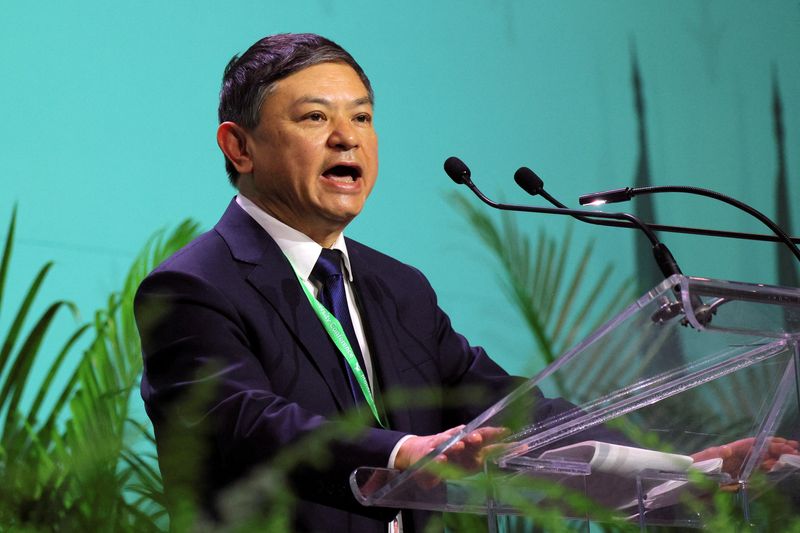Africans against protection of nature
2022.12.19 06:10
[ad_1]

Africans against protection of nature
Budrigannews.com – A historic global agreement to protect nature and allocate billions of dollars to conservation was approved on Monday at a United Nations summit, but the final passage was hampered by objections from important African nations that are home to vast tracts of tropical rainforest.
The Kunming-Montreal Global Biodiversity Framework is the result of four years of work toward the creation of an agreement to direct global conservation efforts through 2030. It reflects the joint leadership of China and Canada.
The nations participating in the COP15 biodiversity conference, which was supported by the United Nations, had been negotiating a text that had been proposed on Sunday. Discussions about the finer points of the deal continued until Monday morning.
Delegates were able to reach agreement on the most ambitious goal of the deal, which was to protect 30% of the world’s land and seas by the end of the decade. This goal is referred to formally as 30-by-30. However, as the delegates gathered to discuss the text’s adoption, concerns regarding funding contributions from developed nations to developing nations appeared unresolved.
With China holding the COP15 administration, Clergyman of Nature and Climate Huang Runqiu seemed to dismiss complaints from the assignment of the Popularity based Republic of Congo, bringing down the hammer and announcing the arrangement passed just a brief time after they said they couldn’t uphold the arrangement.
Through a translator, the Congolese representative stated, “The parties that are developing nations should provide resources to parties that are developed.”
After that, Huang acknowledged Mexican comments in support of the final agreement and announced shortly after 3:30 a.m. (08:30 GMT) that the agreement had been approved, eliciting outrage from other African delegations.
Through a translator, a Cameroonian representative claimed that the agreement was reached by coercion.
A representative from Uganda made the declaration that they did not accept the spirit nor the manner in which the gavel fell, and they asked for it to be written down that Uganda did not support the procedure, citing fraud as an explanation.
An end meeting will be held later on Monday.
The agreement mandates $200 billion annually from both the public and private sectors for biodiversity initiatives, in addition to supporting 30-by-30. Developed nations will provide $25 billion annually beginning in 2025 and $30 billion annually by 2030.
The failed 2010 Aichi Biodiversity Targets, which were meant to direct conservation up until 2020, were replaced by the deal, which has a total of 23 goals. None of those objectives were met, and no nation within its borders met all 20 Aichi objectives.
The deal, in contrast to Aichi, includes more quantifiable objectives, such as reducing harmful subsidies to industry by at least $500 billion annually, which should make it simpler to monitor and report progress.
A sixth mass extinction event, according to scientists, could result in the extinction of over 1 million species by the end of the century. Since 1970, the world’s wildlife population has significantly decreased, and as much as 40% of the planet’s land has been degraded.
In the deal, investment firms recommended that businesses examine and report how biodiversity issues affect and affect their operations.
More Commodities mixed in the Asian trading session
The parties agreed to “requirements” for large businesses and financial institutions to disclose their operations, supply chains, and portfolios; however, the word “mandatory” was removed from previous drafts.








